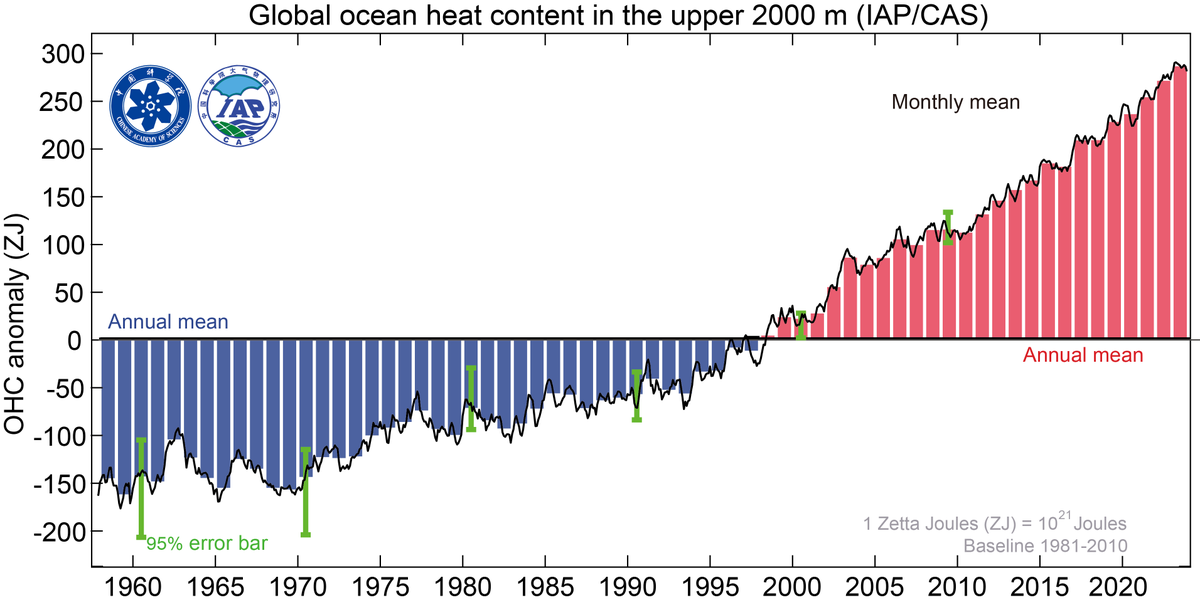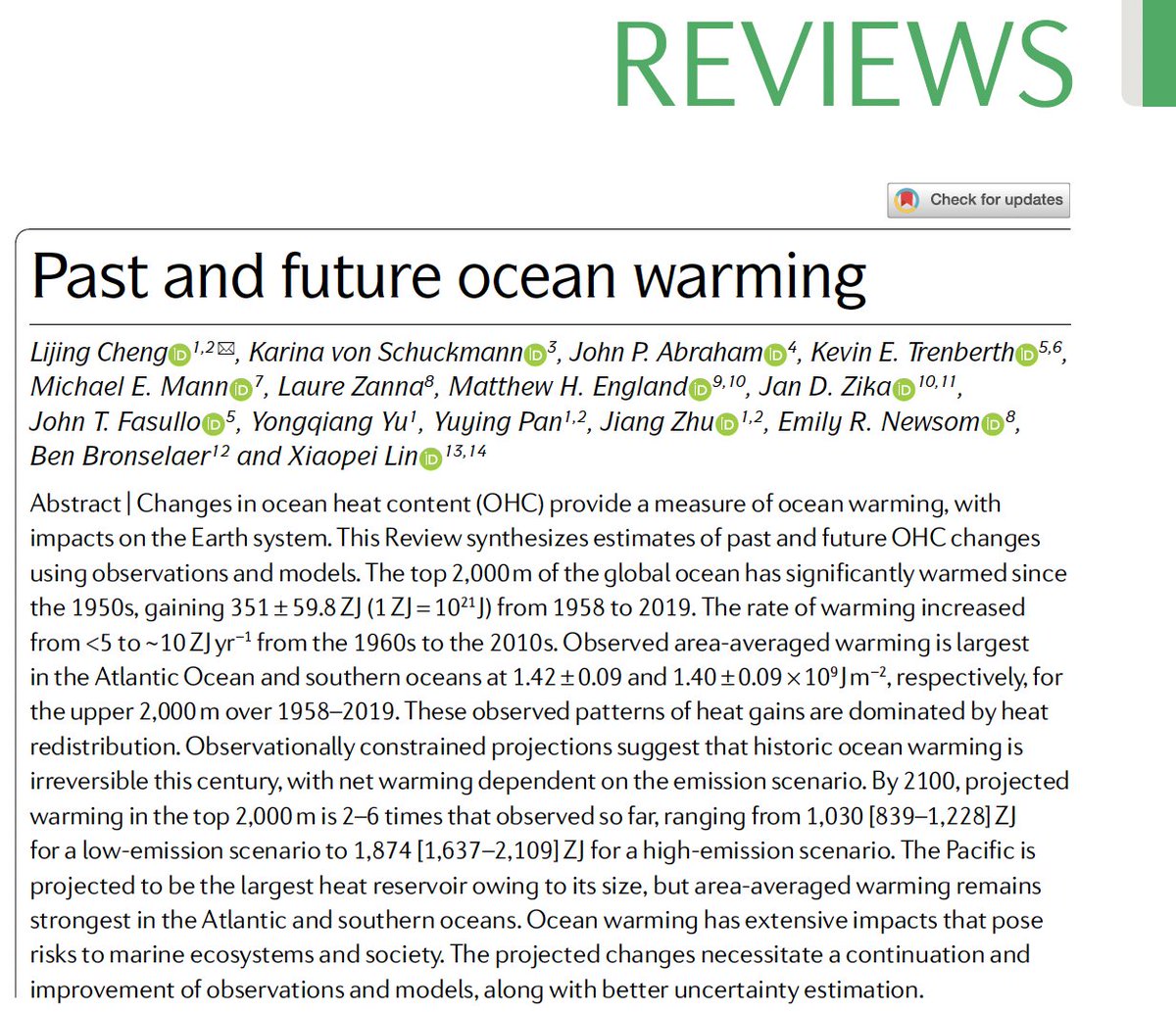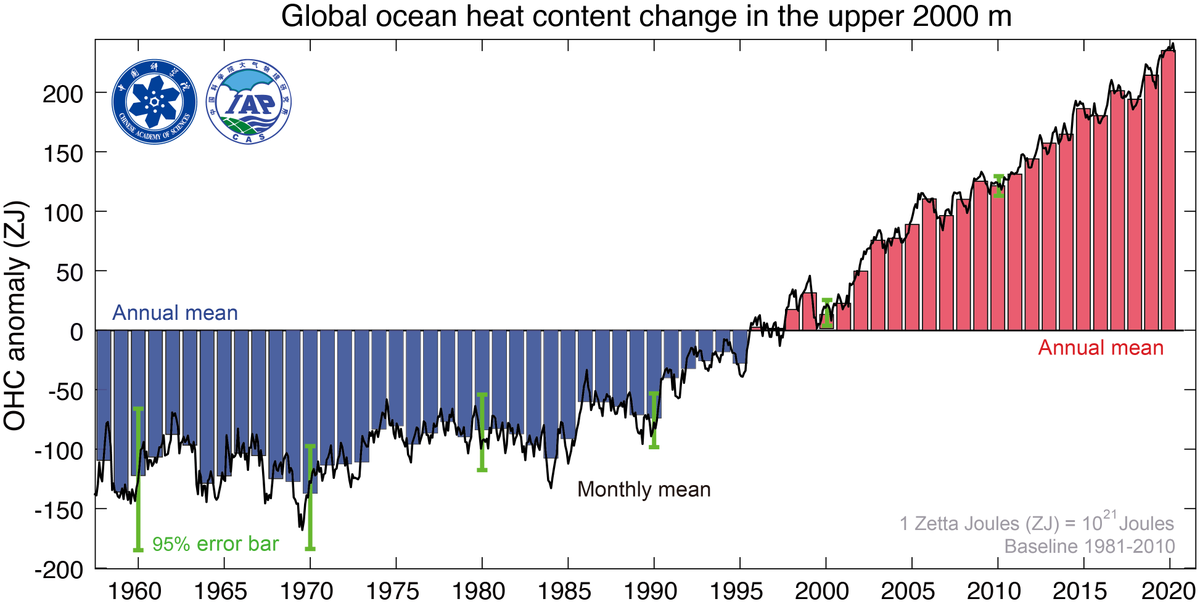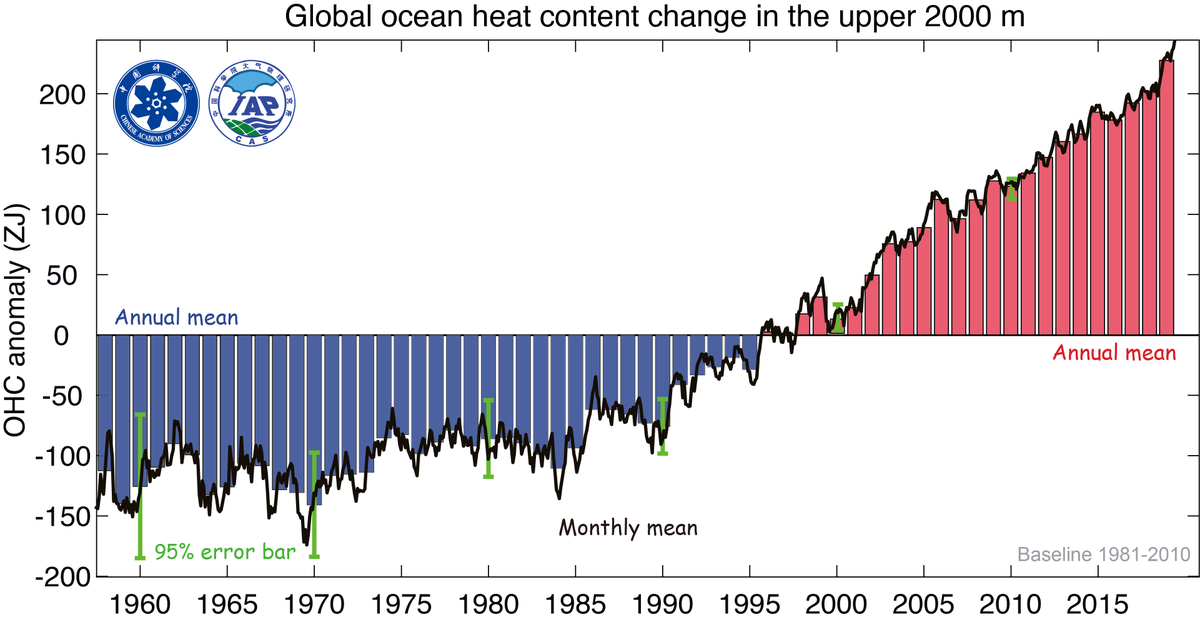
Oceanographer and climate scientist from IAP/CAS, working on ocean observations, ocean heat content and earth's energy budget. Lead Author of IPCC SROCC
How to get URL link on X (Twitter) App



 [2/12] NCEI/NOAA data show a slightly smaller increase in 2023 OHC compared with 2022 (9 ZJ). The difference is mainly due to data quality control and spatial interpolation methods, the raw data are the same (). ncei.noaa.gov/access/global-…
[2/12] NCEI/NOAA data show a slightly smaller increase in 2023 OHC compared with 2022 (9 ZJ). The difference is mainly due to data quality control and spatial interpolation methods, the raw data are the same (). ncei.noaa.gov/access/global-…

 [2/11] Ocean warming is a key component of the Earth system, bridging key climate cycles (energy, carbon, and water cycles) through many processes and feedback loops.
[2/11] Ocean warming is a key component of the Earth system, bridging key climate cycles (energy, carbon, and water cycles) through many processes and feedback loops. 

 [2/9] The world ocean, in 2021, was the hottest ever recorded by humans, and the 2021 annual OHC value is even higher than last year's record value by 14 ± 11 ZJ (1 Zetta Joules = 1021 Joules) using the IAP/CAS dataset and by 16 ± 10 ZJ using NCEI/NOAA dataset.
[2/9] The world ocean, in 2021, was the hottest ever recorded by humans, and the 2021 annual OHC value is even higher than last year's record value by 14 ± 11 ZJ (1 Zetta Joules = 1021 Joules) using the IAP/CAS dataset and by 16 ± 10 ZJ using NCEI/NOAA dataset. 

 [2/8] Differences between the 2020 OHC analyses between IAP/CAS and NOAA/NCEI reflect the uncertainties in the calculation due to method and data coverage. Further quantification of the uncertainties in OHC will help to better specify the confidence in OHC assessment.
[2/8] Differences between the 2020 OHC analyses between IAP/CAS and NOAA/NCEI reflect the uncertainties in the calculation due to method and data coverage. Further quantification of the uncertainties in OHC will help to better specify the confidence in OHC assessment. 

 [THREAD 2/9] Sea water generally forms stratified layers with lighter waters near the surface and denser waters at greater depth (warmer waters atop colder ones). This configuration acts as a barrier to mixing that impacts the efficiency of vertical heat, carbon, oxygen exchanges
[THREAD 2/9] Sea water generally forms stratified layers with lighter waters near the surface and denser waters at greater depth (warmer waters atop colder ones). This configuration acts as a barrier to mixing that impacts the efficiency of vertical heat, carbon, oxygen exchanges 



 [2/9] OHC is one of the key measure of global warming. Human activities emit greenhouse gases (i.e. CO2) into the air, which taps more and more heat in the climate system. Ocean stores more than 90% of the global warming heat!
[2/9] OHC is one of the key measure of global warming. Human activities emit greenhouse gases (i.e. CO2) into the air, which taps more and more heat in the climate system. Ocean stores more than 90% of the global warming heat!